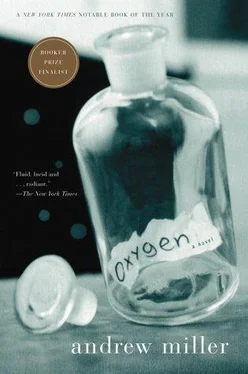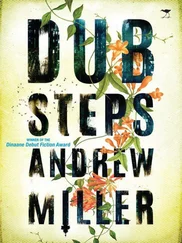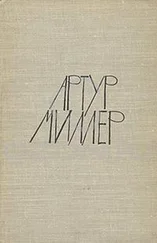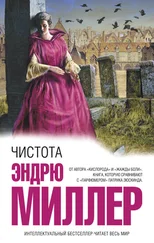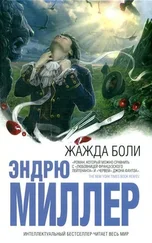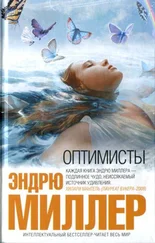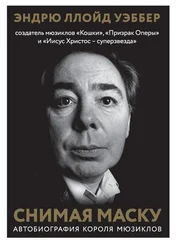The women came forward to support her, but as they gathered her between them, those sturdy attendants, she looked at László, a sudden sharp glance that made the hairs prickle on his neck, for it was precisely the look of the woman in the painting, the bride in the dress of rose blooms. ‘I still love him,’ she whispered.
‘We all love him,’ said László. ‘I’ll go up and make him see sense.’ He turned to go, but Kurt caught hold of his arm. Gently, László freed himself. ‘I won’t do anything dangerous,’ he said. ‘But really, who else is there?’
He went up the broad bare wooden stairs, acutely aware of them watching his back. He felt slightly ridiculous, like George Orwell on his way to shoot an elephant, but he could hardly turn around and say he had changed his mind. He would have to trust himself. He was not tired. And if he stayed with the others and Franklin blew out his brains? No. That was not an option. He would have to go on. Go in.
The door of the apartment was half open, and he hesitated, listening for a minute, wondering whether he should call out. He put his head around the door. The hall light was still burning, and he noticed on the tiles Laurence’s suede jacket where she must have dropped it in her flight. On soft feet he went past the empty kitchen (the old clock ticking in the silence) and along the passageway to the door of the studio, where he leaned his ear to the wood. At first, despite the intensity of his focus, he could discern nothing except the ebbing and flowing of his own body, and certain stray effects from the street. But then, from near by – close! close! – he heard the hushed complaint of a floorboard, and had a vision, shockingly clear, of Franklin Wylie at arm’s length from him on the other side of the door, wild-eyed, the little snub pistol in his fist, waiting for the moment when the door would be opened.
László swallowed. It would be sensible now to be afraid, but what he felt was excitement, the need not to let the moment be squandered. He raised his fingers to the brass of the handle, and as he touched it there came, like a message flung from out of the remoteness of his boyhood, the name of the English soccer captain in the match at Wembley. Billy Wright! He almost laughed aloud at such inconsequence, but it heartened him, and he grinned fiercely at his shade in the varnish of the door panel. Three breaths, he thought. Just three more breaths. Then I’ll go in and save my friend.
I owe a debt of gratitude to the following people, each of whom contributed in some way to the writing of this book. Katie Collins, who was my first encourager. Debbie Moggach, who introduced me to her Hungarian friends, in particular Sándor and Betty Reisner. Rachael Jarrett, together with Alison and Sam Guglani, whose expertise in the field of cancer care was invaluable. Adam Bohr who guided me in Budapest. Misha Glenny (courtesy of Kirsty Lang) who answered my Balkan questions. Ali ‘the cat’ Miller and Marcie ‘po-meister’ Katz in Paris. Sparkle Hayter in New York. Raina Chamberlain in San Francisco. Laurence Laluyaux in London. My parents and step-parents, who recalled on demand the Britain of the 1950s. My sister Emma, loyal to a fault. My editor, Carole Welch, who made this a better book than it could possibly have been without her. And Simon Trewin, my agent: always a good man to have in your corner. Any factual errors are, of course, the sole responsibility of the author.
Andrew Miller, London 2001
1. Why has Miller chosen to combine the stories of the Valentines and László Lázár in one novel? Do you think they work together, despite the fact that the two plots are almost unconnected? How are they connected thematically?
2. Appropriately enough, Oxygen is filled with imagery of air and breath, from Larry inhaling his asthmatic daughter’s breath at the end of the prologue (5) to László’s “three more breaths” before he steps toward his fate in the novel’s last line. How does this imagery relate to the larger themes of the novel: mortality, regret, the disappointment of unfulfilled lives?
3. The two threads of the novel both end with the characters about to perform a final, redemptive action: Alec headed to his mother’s room, seemingly to give her the death pill and end her suffering, László about to take action to save a friend as he had failed to do when he was young. We don’t see how the stories turn out; we don’t know if Alec does give his mother the pill, nor do we find out whether László saves Franklin’s life or loses his own.
Why does Miller choose not to show us the outcome of these two scenes? How do you imagine the stories ending? Does it matter how they end? What is Miller saying about the importance of taking action, regardless of the results? Why has he chosen epigraphs from Hamlet, the great tragedy of indecision, to begin each of the novel’s parts?
4. László’s play, Oxygene, ends in a similar, open-ended way to the novel itself, with the trapped miner using his last strength to hammer at the rock while a woman digs from above. (47) How does the plot of the play reflect the themes of the novel? Can the novel’s characters be compared to the doomed, suffocating miners in the play?
5. Larry fell in love with America at an early age; to him, it “felt like the last place on the planet where things actually happened, a country where a man’s life could still have a mythic weight to it.” (63) In contrast, Alice and Alec dismiss the U.S. as “Hollywood and Vegas and rednecks… razzmatazz and bad food… helplessly vulgar.” (63) Alice views the American impulse toward the mythic thus: “Restless people, the Americans. Everyone wanting to be Péter Pan or Tinkerbell. Foolish to found a country for the pursuit of happiness. People just got into a panic when they hadn’t got it.” (31) How are the differences in the Valentines’ personalities and world views reflected in these differing attitudes toward America?
6. Discuss Alec and Larry’s relationship. Why does Larry seem to be Alice’s favorite, despite the fact that Alec seems to be the more dutiful son?
7. Why does Alec have such trouble expressing emotion? Why is he unable to comfort his mother, or show his fear, as he is driving her home from the hospital? (50) Why doesn’t he believe in God?
8. What do you think of László’s thoughts on the different types of happiness? (111) Which is more important, “the happiness when you know yourself to be happy” or “that which is only apparent afterwards”? Which is more important to László? To Alice? To Larry?
9. László envies the pride the defeated Hungarian revolutionaries feel because “they had played their part; history had not caught them unprepared.” (111) László is denied this “terrorbliss” because of his failure to act to save his friend. On the other hand Alice’s father, “the one who stepped forward when the others were too frightened or wary or confused… didn’t seem to believe in much… Something had been lost.” (29) What is the difference between the two men’s experiences of war and the performance of duty? How is it possible for László to overcome the trauma of his war experience, while Alice’s father never does? Do you agree with László that a moment of courage, the capability to “run back into the burning house without hesitation” is a better kind of success than love? (130)
10. What is the significance of the scene in which László makes the final handoff of the mysterious package in the garden of old communist statues? Why does Miller place it in this setting? How does the completion of his mission help László to reconcile with his past?
11. Much of Oxygen is concerned with memory; the characters struggle to overcome the memories of past mistakes and failures, or to recapture the happiness or optimism of times past. What does each character need from the past, and how does each try to get it (e.g. Alice returning to her childhood home, László undertaking the secret mission, etc.)?
Читать дальше
